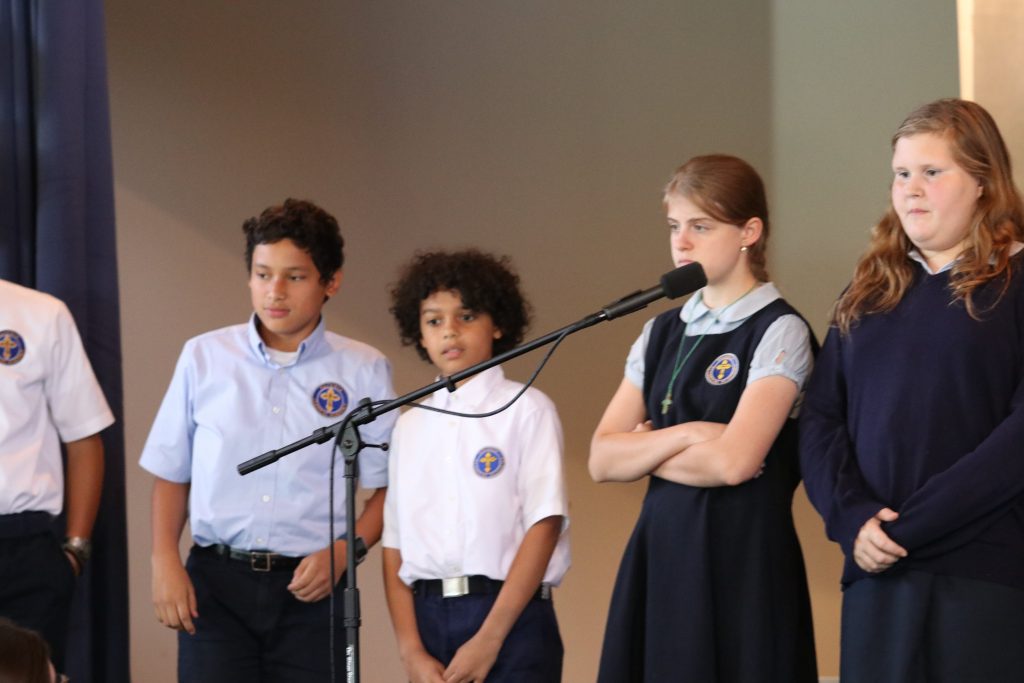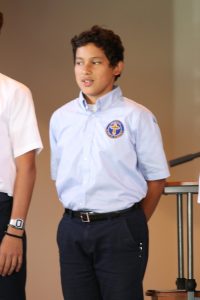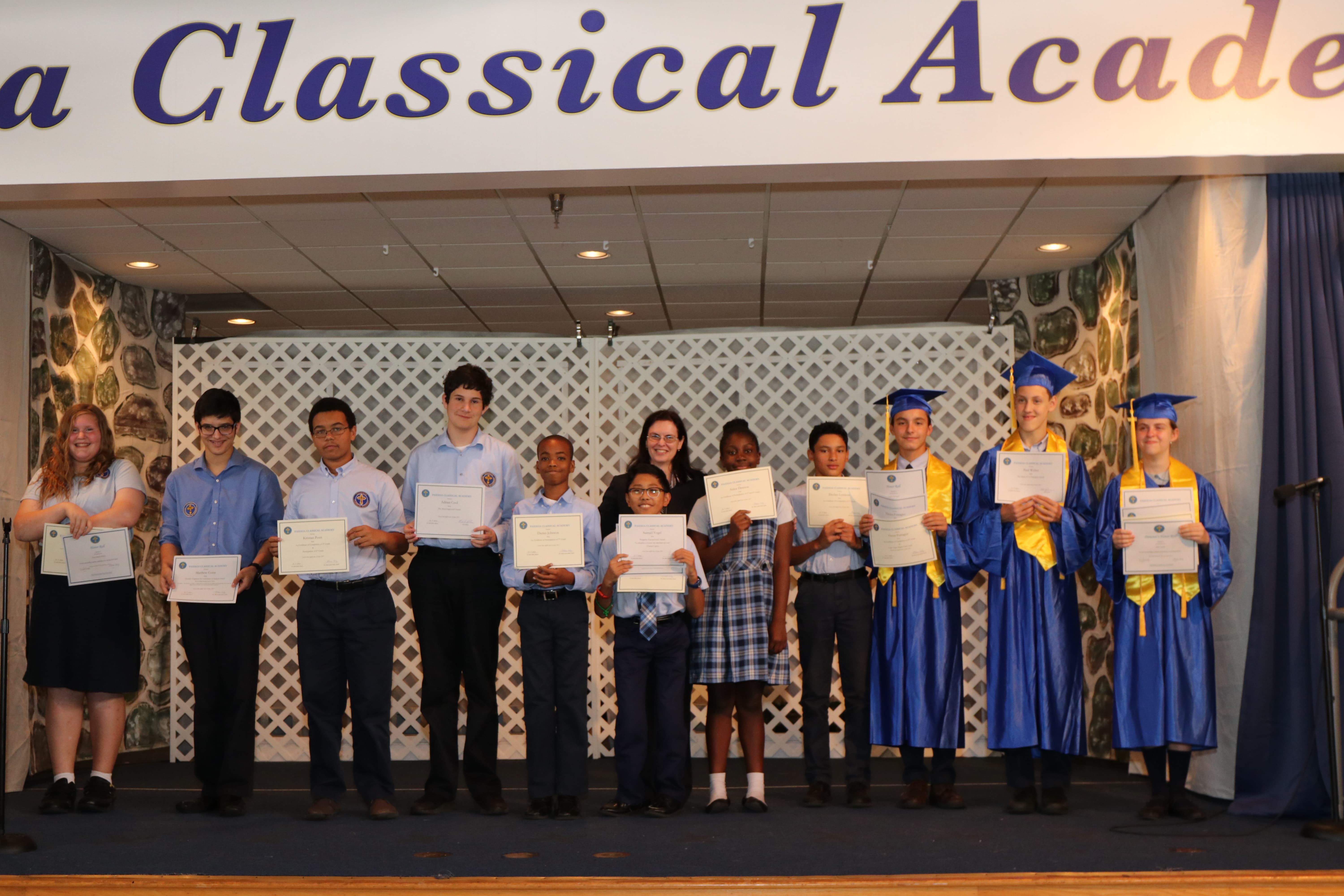Classical Education for the Logic Stage
Logic Stage (roughly eleven- through fourteen-year-olds) Motto: “Our inquiries, doubts, analyses, and strategy games are our wisdom.”
The Logic (or Dialectic) Stage typically engages middle school students, emerging from the Grammar Stage armed with most of the building blocks needed in order to develop the capacity to understand cause and effect and to embrace analytic thought, which is inherently blooming at this age.
Logic Stage Content: classical novels, classical poetry, lives of the saints, strategy games, traditional logic, literary criticism, world history and geography, theory of music and visual arts, vocabulary, and writings of the early Church Fathers.
Logic Stage Goal: Within the larger goal of acquiring lifelong self-teaching and independent thinking abilities, this stage focuses on the designing and building the following pillars:
Logic Stage Virtues: hope, knowledge, honesty, humility, obedience, patience, courage, faithfulness, self-control, and kindness.
What all our days look like in the logic class:
– read / analyze / debate
– write / confirm / refute
– critique
– abstract / integrate
– strategic play
– compete / work in teams
Our Logic Stage Masters will nurture their students’ ability to integrate the building blocks (the “grammar” pillars) of different fields of knowledge, and help them begin the process of categorization and organization into logical frameworks which are destined to serve for a lifetime of conscientious choices. Higher mathematics (such as algebra and geometry) and the application of the study of formal logic to all subjects (such as mastering paragraph construction, incipient literary analysis, thesis-writing, textual criticism and analysis, the scientific method, advanced language morphology and syntax, and historical analysis) are taught now.
Students in the logic stage continue working at their own pace in both mathematics (mastering mixed numbers, decimals, percents, ratios, estimations, and exponents, as well as advancing in the study of statistics, probability, geometry, and pre-algebraic or algebraic expressions) and English grammar (mastering all elements of language morphology, sentence parts, sentence and paragraph structure and mechanics, and advancing in the study of reference sources, reports, and argument writing), as well as spelling and vocabulary (using a phonics-based instructional design, integrated with the overall breath of rhetoric-stage subjects; with lessons focusing on analyzing spelling patterns, and utilizing proofreading, riddles, puzzles, and word games as practice towards perfection). The study of language arts is completed with two hours and a half of classical world literature every week, as well as one weekly hour of training in classical writing (following the progymnasmata method and curriculum), and one in classical poetry and American short prose. With their introduction to Patristics, the students commence their six-year journey (continued in the rhetoric stage) studying the writings of the Holy Fathers. World history and geography continues its four-year cycle, while the sciences will alternate on a three-year pattern, going through biology, physics, and chemistry. The students continue their study of Spanish, along with the classical languages, Latin and Greek, and delve deeper into classical music, Byzantine chanting, art. Starting with their first year in the logic stage, students will go through two years of formal logic, and one of material logic; their faith education is rounded up at this stage with reading through the four gospels, focusing on the weekly Sunday readings and sermons, while continuing to read the lives of the saints.
The Logic Stage is a stage where the pursuit of truth is accompanied by training in defending it; where the logos, building upon the vocabulary of the grammar years, joins the pathos of teenage years; a stepping stone, paved with answers to why and how questions, towards the final step of the paideia odyssey: The Rhetoric Stage.
Our logic class is designed for more mature students from ages 12- 14 years of age. These students read classical literature and learn Greek, Spanish and have intensive studies.



Outdoor learning and tending to our school garden is a big part of our day.
Outdoor learning and tending to our school garden is a big part of our day.
Outdoor learning and tending to our school garden is a big part of our day.